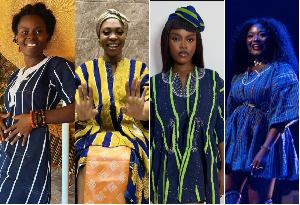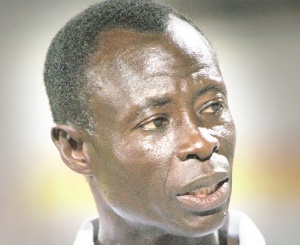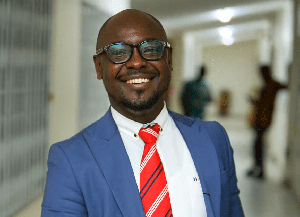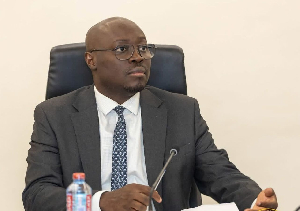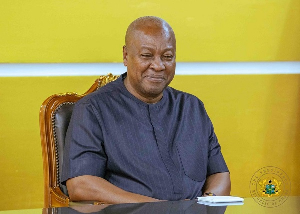Francis Oti Akenten, the current Technical Director of the Ghana Football Association, GFA, is a man who rose through the ranks after years of dedicated service to the development of football.
Regarded as one of Ghana’s most decorated coaches, Akenten has coached all of Ghana’s national teams from the youth level to the senior level in both the male and female categories. He is not renowned for nothing; he coached Ghana’s biggest club sides – former African Champions Kumasi Asante Kotoko and Accra Hearts of Oak.
Armed with an M.Phil in Education and Coaching, Akenten has set his eyes on going back to grassroots football in a bold move to transform Ghana’s youth football which has seen a downward spiral in recent times.
Off the field, Akenteng has chatted with Weekend Sun, dwelling on ways to develop grassroots football in Ghana, age cheating, fixing the football structure and improving the junior national teams.
How difficult is it trying to balance results – particularly at an elite junior level such as the junior teams – and development?
In Ghana, there is a very strong emphasis on winning and that’s one of the strong points of Ghanaian sports culture. We shouldn’t change that and also, a game of football at any level or any age is about winning a game and scoring more goals than the opponent; only that in a game of football the nature of the opponent and the way you win differs.
If you put too much emphasis on the result at too young an age then you tend to choose strong players instead of skilful ones and you forbid players from taking risks and initiative. At the end of the day, you get punished for that because at the top level the game is not decided by the strongest and the fittest players because all players are strong and fit.
Rather, the game is decided by players like Messi and Cristiano Ronaldo – the skilful ones – and if you want to go so high then you need players like that. That’s more or less my message and why we should put more emphasis on skill development as opposed to strength and conditioning at a young age.
In developing grassroots football in Ghana, what essentials must become the focus?
A footballer will not become one if he starts getting coaching at the age of 12 or 14. You need to start when the kids are 5, 6 and 7. They need to be told what to eat and how to eat and when to eat so their diet is designed well. As a parent, you need to understand the difficulty of such things if you are used to having a late dinner.
One needs to understand that it’s best to eat early so that food digests better, and one doesn’t develop a belly. What is important is to acknowledge the problem, and make a concerted effort to try and change. So, football is like a blank canvas in that regard.
There is a lot that can be done, if only the thought is allowed to grow. The local league has indicated that they want to develop, both as a brand, and focus on grassroots football, and I hope that they succeed, I hope that they are able to develop players who go on to play for Ghana, and in the league as well as abroad. Fundamentally, apart from everything else I mentioned, it comes down to providing good coaching.
Also, it is important to understand that grassroots football development takes time, a lot of time. Take Spain, for example, when they started producing a great bunch of youngsters in 2010, it was confirmed that Spanish kids used to play around 10000 hours before making it to the senior team, a lot more than the English youngsters.
So, it is essential that we acknowledge the good in different processes, and use it to our advantage to improve the mentality towards football.
How do you think the outlook towards sport in Ghana can change?
The first thing is we need to get a lot more former sportspersons onto the different committees so that the approach towards the game is always from the sport point-of-view. Their presence will add weight to the value of the game, and help provide some visibility.
The other aspect that needs to change is expecting immediate returns on investment. Grassroots development will work only when we provide proper coaching, regular practice, and the patience to wait for a long period of time before wanting to see any development on your investment.
The most important change should be that the belief should be communicated to everyone involved that these can be potential career options. It needs to be told that working in football can be a proper career choice. Not everyone has to become a doctor or an engineer. What is important is to encourage students to play the sport while they study.
It should not be that they stop playing just because they have some exams. At the age of 12, that shouldn’t even matter!
The Confederations of African Football (CAF) banned Ghana from the 2015 African U17 Championships in Niger for age-cheating. What explains it?
Every time we assign a coach to any of the youth teams and he does not win, we criticise him and he gets fired while the successful ones are rewarded and recognised. When another coach sees this, he will definitely want to do well and that will force him to cheat and succeed.
Very often, we fail to see that football at the youth stage is for development and that places pressure on the players and the coach to win at all costs. We must understand that winning at that level is means to grooming players, not an end.
Sports News of Sunday, 17 May 2015
Source: thesunonlinegh.com
Those that we must blame for age-cheating — Oti Akenteng
Entertainment
